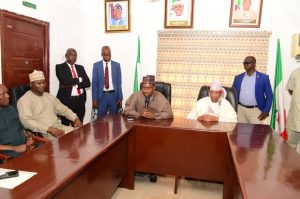News
Agric ministry pledges to reduce post-harvest losses by 25%
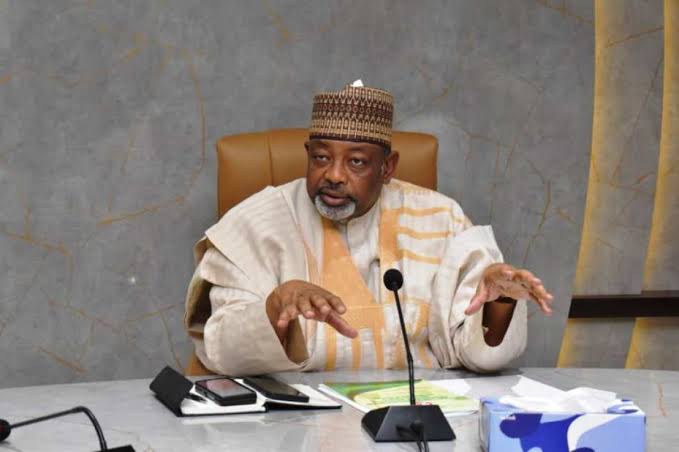
By Francesca Hangeior.
The Federal Ministry of Agriculture and Food Security has pledged to significantly reduce post-harvest losses in the agricultural sector by 25 per cent as part of its efforts to ensure food security and boost domestic production.
This commitment was made during the Special Agro-Industrial Processing Zones High-Level Implementation Acceleration Dialogue held in Abuja on Monday.
The Special Agro-Industrial Processing Zones initiative is a Nigerian government programme aimed at boosting agriculture through targeted investments, integrating farming, processing, and marketing to increase productivity, reduce losses, and enhance value addition for food security, job creation, and poverty reduction, supported by the African Development Bank, International Fund for Agricultural Development, and Islamic Development Bank.
In his keynote address, the Minister of Agriculture and Food Security, Abubakar Kyari, emphasised the urgent need for a collaborative approach to address the existing challenges within the agricultural sector.
“Our objective is clear: we must enhance our production capabilities and reduce post-harvest losses from the current 45 per cent to 20 per cent. This is critical not only for food security but also for improving the livelihoods of our farmers,” Kyari stated.
According to him, the SAPZ initiative aims to create agro-industrial processing zones across seven states and the Federal Capital Territory, focusing on key crops like cassava, rice, maize, and cocoa.
He added that the programme is expected to generate approximately 500,000 direct and indirect jobs while also contributing additional metric tonnage to the nation’s food supply.
Finance Minister Wale Edun, speaking at the event, reinforced the government’s commitment to industrialisation through agriculture.
“The successful production of food is fundamental to our economic stability. When we achieve our production goals, we will see a significant impact on inflation, interest rates, and ultimately, our trade balance,” he said.
Edun highlighted the collaboration between the federal and state governments, as well as private sector partners, as vital for the success of the SAPZ programme.
“We cannot afford to disrupt domestic production while addressing the immediate food needs of our population. This requires a careful balance of both short-term and long-term strategies,” Edun added.
The Country Director of the African Development Bank, Abdul Kamara, also spoke at the workshop, underscoring the potential of the SAPZ programme to transform the rural economy.
“By reducing post-harvest losses from 50 per cent to 10-20 per cent, we can make a significant contribution to the economy and improve food security,” Kamara stated.
He encouraged all stakeholders to work collaboratively to address challenges impeding implementation.
The workshop brought together various stakeholders, including state governors and representatives from development partners, to discuss the acceleration of the SAPZ programme.
Dr. Abdulkazumare, representing the Governor of Kaduna State, emphasised the need for innovative solutions to current constraints.
“Our goal should be to learn from successful models globally and adapt them to our local context,” he added.
The Agriculture Minister stated that as discussions continue, the Agriculture Ministry remains optimistic about the outcomes of the SAPZ initiative, which it sees as a cornerstone of Nigeria’s agricultural transformation and economic growth.
“The path forward requires not just commitment but also effective communication to galvanise public support.
Together, we can build a resilient agricultural sector that meets the needs of all Nigerians,” Kyari said.
The Country Director of the International Fund for Agricultural Development, Dede Ekoue, expressed gratitude for the initiative, stating, “We would like to extend our warm congratulations to the Honourable Minister of Agriculture and Food Security for this laudable initiative.”
He also recognised the leadership of the Minister of Finance, stating, “His leadership in facilitating the finalisation and implementation of the Financing Agreements has been invaluable.”
Ekoue highlighted ongoing efforts in Kano State, where IFAD is supporting an accelerated pilot project aimed at enhancing the capabilities of rice and tomato farmers.
He emphasised the importance of partnerships, saying, “We are pleased that the implementation of these strategies has led to some quick wins, such as the signing of off-take contracts.”
The director stressed the need for collaborative efforts, adding, “We must work together to address the challenges affecting implementation.”
He outlined key actions to enhance the programme’s success, including strengthening coordination and technical capacity.
Regarding Ogun State, Ekoue acknowledged the signing of a subsidiary loan agreement and expressed hope for further agreements to expedite project implementation.
“We are convinced that this strategic gathering will empower all stakeholders to accelerate the implementation of SAPZ at these critical times for food security and inclusive economic growth,” he said.
News
Senator Manu donates five operational vehicles to Taraba PDP(Photos)
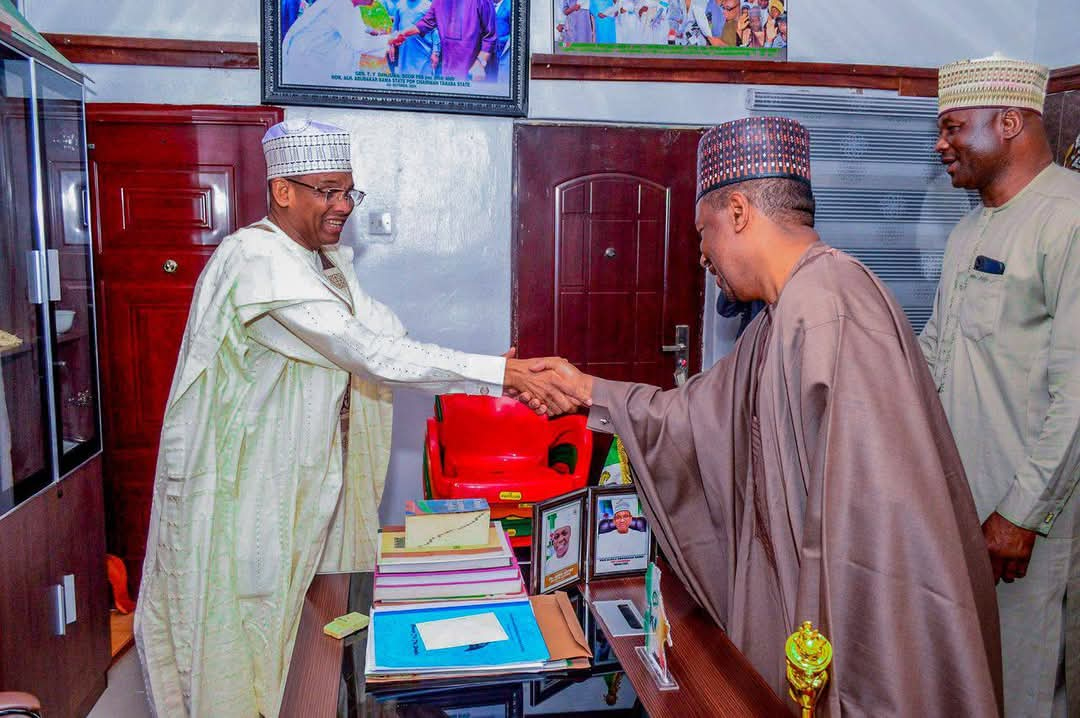
…hails emergence of Bawa as state chairman
The Senator representing Taraba Central Senatorial District Senator Manu Haruna on Sunday donated five operational vehicles to Taraba Peoples Democratic Party, PDP to enhance its operations.
Manu also seized the opportunity to congratulate the state Chairman, Hon Abubakar Bawa when he visited the secretariat in Jalingo last Sunday.
The former State Deputy Governor expressed his congratulations to Chairman Bawa and the state working committee for their election, emphasizing the importance of unity and progress within the party. He commended their commitment to strengthening the People’s Democratic Party (PDP) in Taraba State.
In a generous move to enhance the operational capacity of the party at the grassroots level, Senator Manu donated five vehicles — one for each Local Government Area (LGA) party chapter in Taraba Central.
This donation is intended to facilitate better coordination and outreach efforts within the party.
Senator Manu praised Hon. Abubakar Bawa for his dedicated efforts to elevate the PDP in the state, asserting that Taraba will always remain a stronghold for the party.
In response, State Party Chairman Alhaji Bawa expressed his heartfelt gratitude to Senator Manu for his thoughtful visit and generous donation. He acknowledged the impact of such contributions on the party’s progress and reemphasized the commitment of the PDP to serve the interests of the people in Taraba State.
News
Justice Minister, Fagbemi seeks support for govt’s national law reform initiative
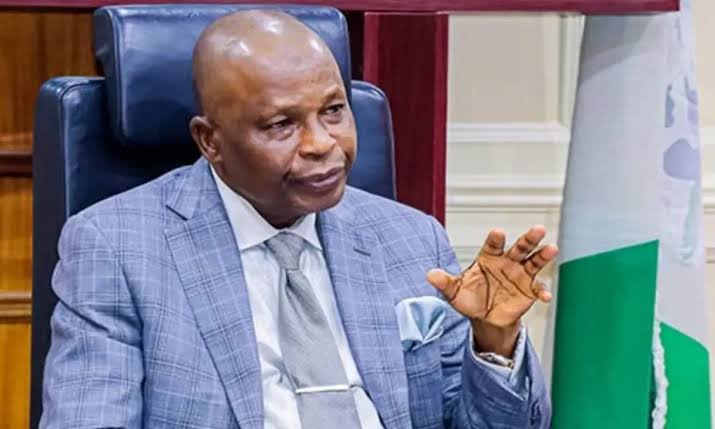
By Francesca Hangeior
The Attorney General of the Federation and Minister of Justice, AGF, Prince Lateef Fagbemi, SAN, has canvassed for greater efforts and commitments to the Federal Government’s aspirations to produce a workable legal framework for the country.
He charged the Committee put in place by the federal government to review, revise and consolidate the Laws of the Federation of Nigeria, LFN, to double the efforts and commitments to deliver on the mandate at the appointed time.
Fagbemi, a Senior Advocate of Nigeria, spoke on Monday in Abuja at the second retreat of the Committee put in place in October last year for the laws of the federation revision and reform.
The AGF while challenging the committee to be up and doing asked the members to remain united in purpose and steadfast in the resolve to produce a legal framework that is worthy of the nation’s aspirations.
He said the second retreat organized by the federal government was a strategic consolidation of the national law reform efforts and to provide an invaluable opportunity to come up with a better workable legal framework for the nation.
“Let me start by expressing gratitude to the Chairman, Co-Chairperson and members of the Committee for their selfless service and sacrifice, to ensure that this project is executed efficiently and effectively.
“The call to be part of this assignment is indeed a sacred that inevitably and positively affects the lives of individuals, government, businesses as well as citizens of this nation.
“The general purpose of law is to regulate human behavior by protecting lives and properties in society. The inauguration of the Committee on the 24th October, 2024 marked a historic milestone in our collective efforts to modernize, consolidate, and harmonize Nigeria’s body of federal statutes.
“The retreat successfully provides a clear framework for the structure and methodology of the revision exercise, oriented the 14 Working Groups tasked with reviewing specific legal subject areas, and fostered collaboration among key institutions and stakeholders on the project.
“Following the initial retreat, I wish to note that the Committee has recorded steady progress in its work.
“The Ministry has taken several measures to ensure that the assignment is delivered efficiently, including:training sessions for secretaries of the working groups to enhance documentation and coordination; technical meetings of the main committee and its various sub-committees; working sessions and deliberations among editors and reviewers; and ongoing technical collation of revised laws by the Secretariat.
“This second retreat is a strategic consolidation of our national law reform efforts and provides an invaluable opportunity to: review progress made since the first phase;
address any technical or structural challenges encountered during the collation process;
– Harmonize the output across working groups; and set the tone for the final stages of this important project.
“The next stage of the law review and consolidation process would include editing and proofreading the reviewed legislation, ahead of the final collation, production and printing of the laws of the federation.
“It is my conviction that these phases will be executed with even greater commitment by the Committee, with the support of stakeholders and development partners.
“I wish to commend the leadership of the LFN Committee, the Secretariat for its diligent coordination and day-to-day management as well as the Working Groups, Editors, and Reviewers, for their intellectual rigour and professionalism.
“Special gratitude to our development partners, particularly RoLAC, for standing firmly behind this national project.
“Let me urge all participants to use this retreat as a platform for robust engagement, peer learning, and practical collaboration.
“We must remain united in purpose and steadfast in our resolve to produce a legal framework that is worthy of our nation’s aspirations.
” I wish to express gratitude for your commitment to duty and I charge you to work in synergy and cooperation, in the overall interest of the nation”, the AGF said.
News
You must refund N300m, Rivers State tells NBA
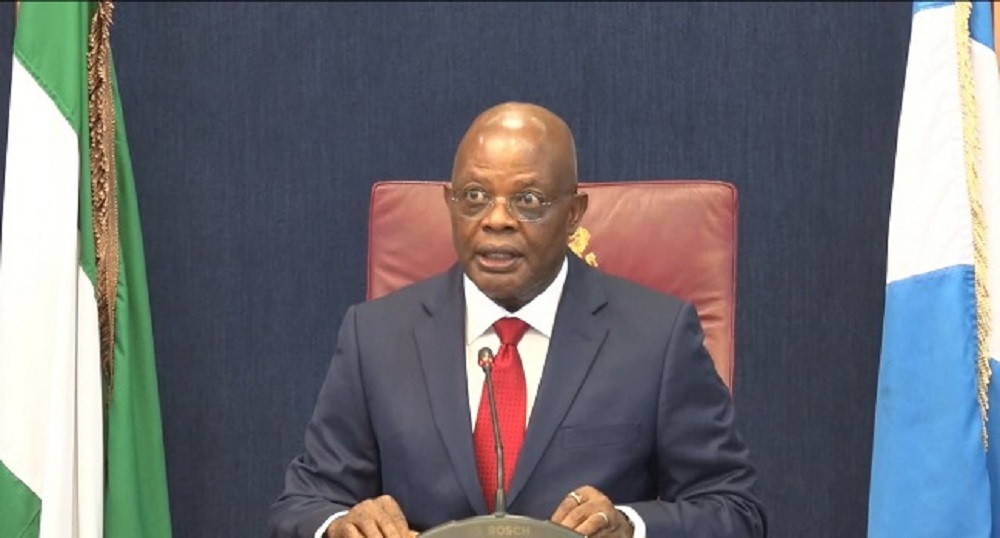
The Rivers State Sole Administrator, Vice Admiral Ibok-Ete Ibas (retd.), has replied to the Nigerian Bar Association regarding the reason for relocating its Annual General Conference from Port Harcourt to Enugu State.
Ibas faulted the reason cited by the NBA, describing it as misleading and uncharitable.
The Sole Administrator stated this in a statement issued in Port Harcourt on Monday by his media aide, Hector Igbikiowubo, and sent to newsmen.
He said while the NBA reserves the right to choose a venue for its conference, the association had yet to address the issue of the refund of the hosting rights paid by the state government for the conference.
The statement partly reads, “While we respect the NBA’s right to choose its conference venues, we find it curious that the association—despite its “principled position”— didn’t address the refund of the N300 million already paid by the Rivers State Government for the hosting rights of the 2025 conference.
“If the NBA truly stands on principle, it should demonstrate the same integrity by promptly returning these funds rather than benefiting from a state it now publicly discredits.”
It added, “The attention of the Rivers State Government has been drawn to the Nigeria Bar Association’s announcement dated 10th April 2025, relocating its 2025 Annual General Conference from Port Harcourt to Enugu.
The statement partly reads, “While we respect the NBA’s right to choose its conference venues, we find it curious that the association—despite its “principled position”— didn’t address the refund of the N300 million already paid by the Rivers State Government for the hosting rights of the 2025 conference.
“If the NBA truly stands on principle, it should demonstrate the same integrity by promptly returning these funds rather than benefiting from a state it now publicly discredits.”
It added, “The attention of the Rivers State Government has been drawn to the Nigeria Bar Association’s announcement dated 10th April 2025, relocating its 2025 Annual General Conference from Port Harcourt to Enugu.
-

 News23 hours ago
News23 hours agoAutonomy: 774 LGs challenge FG, states in court Tuesday
-

 News16 hours ago
News16 hours agoJust in: Namibia Moves to Deport Over 500 Americans in Bold Visa Policy Shift
-

 News16 hours ago
News16 hours agoRivers women rally in support of state of emergency
-

 News11 hours ago
News11 hours agoYou must refund N300m, Rivers State tells NBA
-
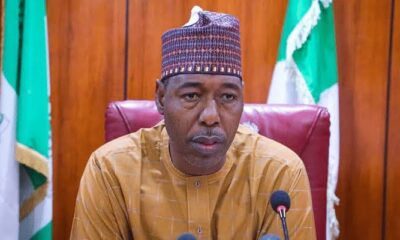
 News23 hours ago
News23 hours agoZulum orders arrest, offers house, scholarship to abused boy in viral video
-

 Politics14 hours ago
Politics14 hours agoBwala accuses Senator Ndume of plans to defect from APC
-

 Foreign12 hours ago
Foreign12 hours agoUS orders 30-day registration for all foreign nationals or face jail, deportation
-

 News24 hours ago
News24 hours agoNANS criticize NASS over proposed bill to fine, jail non voters



